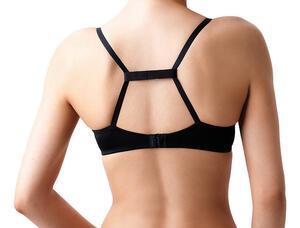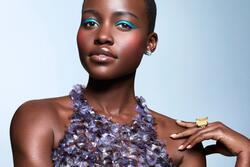Tech Execs in Boyshorts: "Intelligent" Advertising?
Dear Kate is an underwear company that I first heard about this morning. The company’s founder is a former chemical engineer named Julie Sygiel who felt betrayed by her leaky underwear—yes, Dear Kate was created to make better period panties. The company is run by four women, and their website is full of words like “technology” “revolutionary” and “real women.” I arrived at said website because my friend sent me Dear Kate’s latest ad campaign and it really rubbed me the wrong way. All of my mixed feelings about using feminism in advertising—a trend that has rapidly gathered steam over the last few months—came to a head. This was BAD. I hated it. It pissed me off.
Let me back up. Dear Kate’s new lookbook features women tech executives in their underwear (well, in Dear Kate’s underwear). The Ada collection—named for female programmer Ada Lovelace—is made up of casual, functional bras, panties, and undershirts. The models are definitely “non-traditional,” not all white, not all thin, and none of them tall enough to model professionally. This is cause for celebration: women should be able to see how a pair of underwear fits on differently sized butts before ordering them online. But all I could think when I looked at this lookbook was that none of these women’s male counterparts would be caught dead modeling underwear. Well, maybe as a sexist joke. Most of the photos show the six women posing with computers, whiteboards, or tablets. There is one particularly painful image of them sitting around a table with laptops looking serious, as if they’re attending a meeting. In their underwear. They look like they are playing “let’s pretend we run an office” at a sleepover. I cannot.
So I went to Dear Kate’s website to see what other horrors they could offer me. Doctors in their underwear? Senators?
Maybe you can already tell where this is heading. After a half hour scrolling through images on Dear Kate’s website, my fiery reaction to the company’s advertisements started to cool. They have fourteen lookbooks on display, and only three showcase tall, thin, white models posing in sunlit lofts and on decorative bridges, as underwear models are wont to do. Those three early campaigns look more or less like Anthropologie catalogues, but from there Dear Kate starts experimenting with something different: themed lookbooks with non-models that take their inspiration from great women in history: jazz legend Ella Fitzgerald, pilot Amelia Earhart, ballerina Margot Fonteyn, and botanist Vera Scarth-Johnson. Is it “kosher” to use women like Ella Fitzgerald and Margot Fonteyn to sell underwear? My righteous anger is starting to fizzle: I hated this company so much an hour ago, but I’m a sucker for ads that incorporate women’s history and atypical models. Dear Kate also uses athletes in their campaigns to promote their “sport” collections.
Then I look at the images for their most recent plus-sized and sport collections, and I really melt. Here are hot, confident, plus-sized women, looking awesome in underwear and talking about their thriving careers. Then, six athletes, impressively fit and photographed while exercising—not standing around looking pretty. This makes sense: showing that Dear Kate’s underwear fits well and stays put on differently shaped bodies and bodies in action. Hallelujah, I get it!
Which brings me back to the Ada collection. Ada Lovelace created the world’s first algorithm carried out by a machine, making her the world’s first computer programmer. I don’t know how she felt about underwear, but I doubt whether a better fit and leak protection, as promised by Dear Kate, would have helped her career. I love that Dear Kate is striving to use differently shaped women of many different ethnicities to sell underwear, a product traditionally sold by using only the most glamorous and stereotypically feminine models. But I’m still uncomfortable with the Ada campaign’s use of women in tech. The tech industry, by all accounts, is still a boys club. Isn’t putting successful women in tech on the Internet, in their underwear, a setback? Am I being ridiculous? Maybe it is progress to show women in underwear as complex and business-minded, as well-rounded people rather than mannequins. I just don’t know. Help me, readers! Also, please buy me a pair of these underwear; they look totally great.






